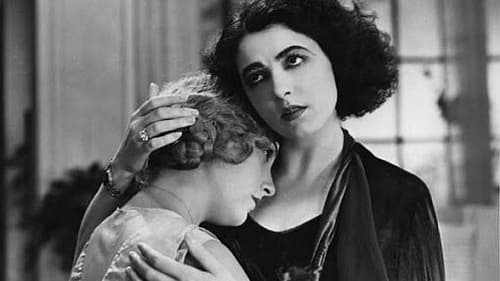
During hard times, a vivacious girl looks for an office job in the hope of landing a rich man.The director of the bank she works at flirts with her while not at first revealing his identity so she rejects him.

During a reception in a villa, wealthy banker Calandri is killed in the park with a gunshot. The gamekeeper Barra is immediately arrested, but he declares himself innocent. During the trial it turns out that the defendant had threatened the victim, guilty of courting his sister-in-law. But the deposition of a journalist present at the party soon leads to discover the existence of a dense network of equivocal relations between the victim, the guests and the servants. This judicial setting drama is allegedly the second Italian sound film after "The Song of Love", made using the RCA Photophone recording technique, and is also considered to be the first Italian detective film, a precursor to the later genre of Giallo films.

Antonin (as H. Bandini)
Lucienne, typist and gorgeous bathing beauty, decides to enter the 'Miss Europe' pageant sponsored by the French newspaper she works for. She finds her jealous lover Andre violently disapproves of such events and tries to withdraw, but it's too late; she's even then being named Miss France. The night Andre planned to propose to her, she's being whisked off to the Miss Europe finals in Spain, where admirers swarm around her. Win or lose, what will the harvest be?

Based on a short story written by Novel Prize for Literature in 1894, Grazia Deladda, “La Grazia” is a classic Italian-drama that follows the story of the a man (Giorgio Bianchi) who fell in love with beautiful shepherdess (Carmen Boni). Separated by fate, the man had an accident on his way back to his wife. For years, absence of her husband has made the woman suffer. She takes care of her child while waiting for her husband’s return.

Giuditta e Oloferne is a 1929 Italian silent historical film directed by Baldassarre Negroni and starring Bartolomeo Pagano, Jia Ruskaja and Franz Sala. It was the final film of Pagano, who had been famous during the silent era for his portrayals of Maciste.
The film is based on the story of Judith Beheading Holofernes.

Zeffirino

Bartolomeo Pagano as Maciste in Maciste in the Lions' Den. A Italian silent from 1926.

Adaptation of the Ermanno Geymonat play.

Cadetto Paintheroxskoski

Oscar
The beautiful Thaïs Galitzy plays Vera, a Slavic countess, a seductress who drags married men to the brink of ruin. When she seduces the husband of her best friend, all involved meet a nasty fate.




